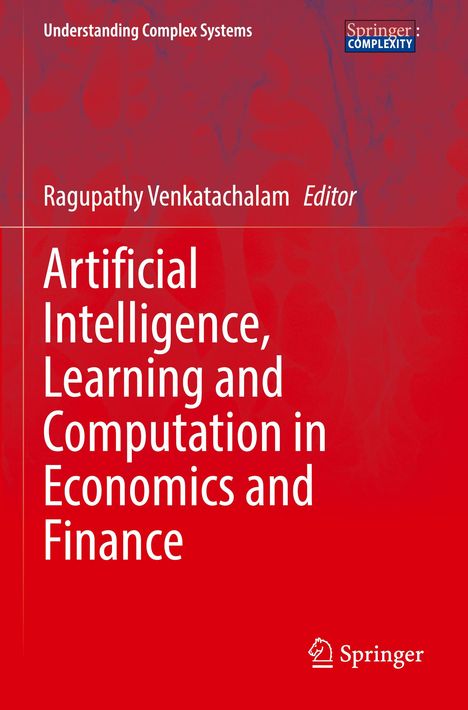Artificial Intelligence, Learning and Computation in Economics and Finance
Artificial Intelligence, Learning and Computation in Economics and Finance
Buch
- Herausgeber: Ragupathy Venkatachalam
- Springer International Publishing, 02/2024
- Einband: Kartoniert / Broschiert, Paperback
- Sprache: Englisch
- ISBN-13: 9783031152962
- Bestellnummer: 11767902
- Umfang: 340 Seiten
- Nummer der Auflage: 24001
- Auflage: 1st edition 2023
- Gewicht: 517 g
- Maße: 235 x 155 mm
- Stärke: 19 mm
- Erscheinungstermin: 16.2.2024
Achtung: Artikel ist nicht in deutscher Sprache!
Weitere Ausgaben von Artificial Intelligence, Learning and Computation in Economics and Finance
Klappentext
This book presents frontier research on the use of computational methods to model complex interactions in economics and finance. Artificial Intelligence, Machine Learning and simulations offer effective means of analyzing and learning from large as well as new types of data. These computational tools have permeated various subfields of economics, finance, and also across different schools of economic thought. Through 16 chapters written by pioneers in economics, finance, computer science, psychology, complexity and statistics / econometrics, the book introduces their original research and presents the findings they have yielded.Theoretical and empirical studies featured in this book draw on a variety of approaches such as agent-based modeling, numerical simulations, computable economics, as well as employing tools from artificial intelligence and machine learning algorithms. The use of computational approaches to perform counterfactual thought experiments are also introduced, which help transcend the limits posed by traditional mathematical and statistical tools.
The book also includes discussions on methodology, epistemology, history and issues concerning prediction, validation, and inference, all of which have become pertinent with the increasing use of computational approaches in economic analysis.


